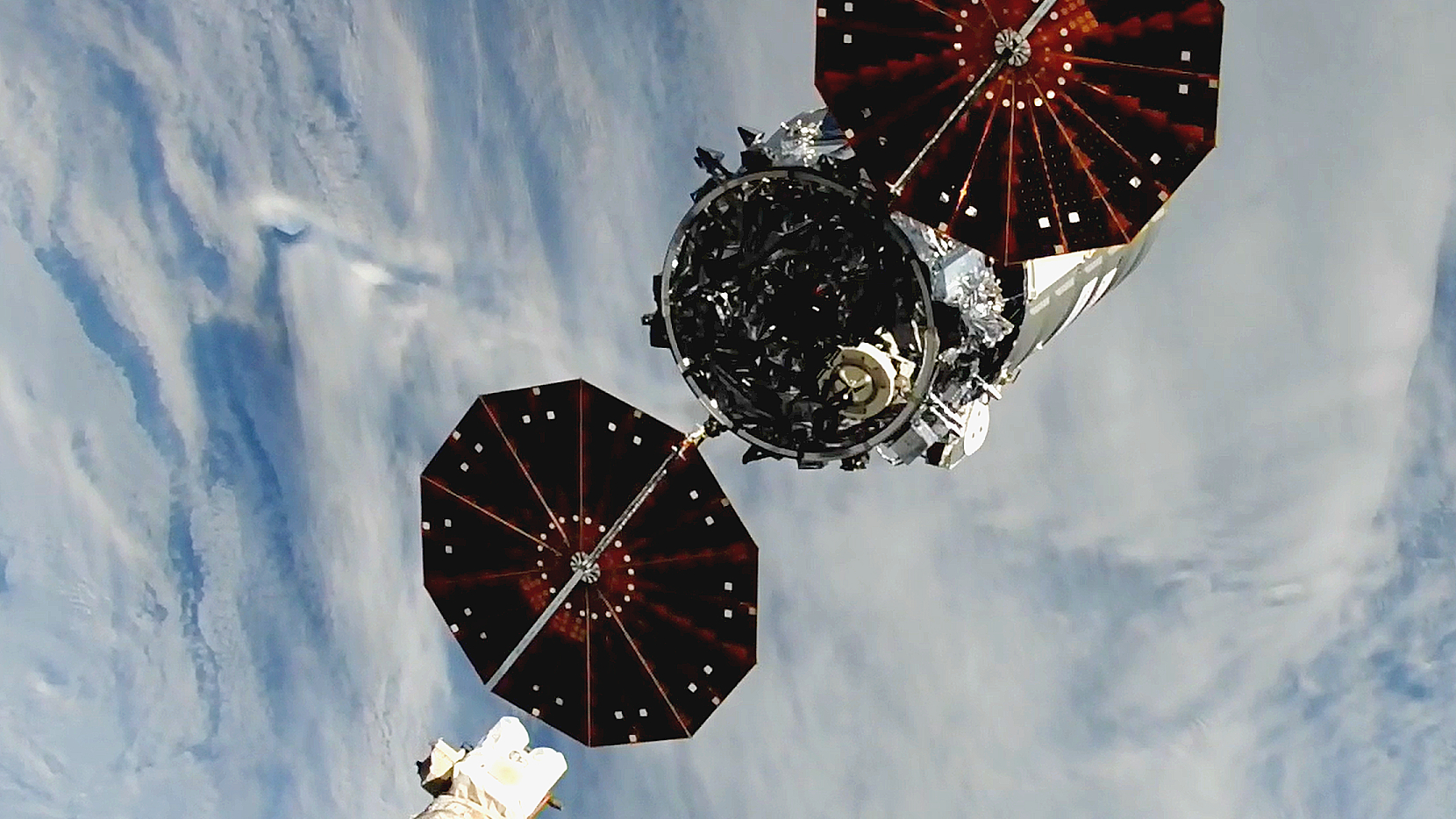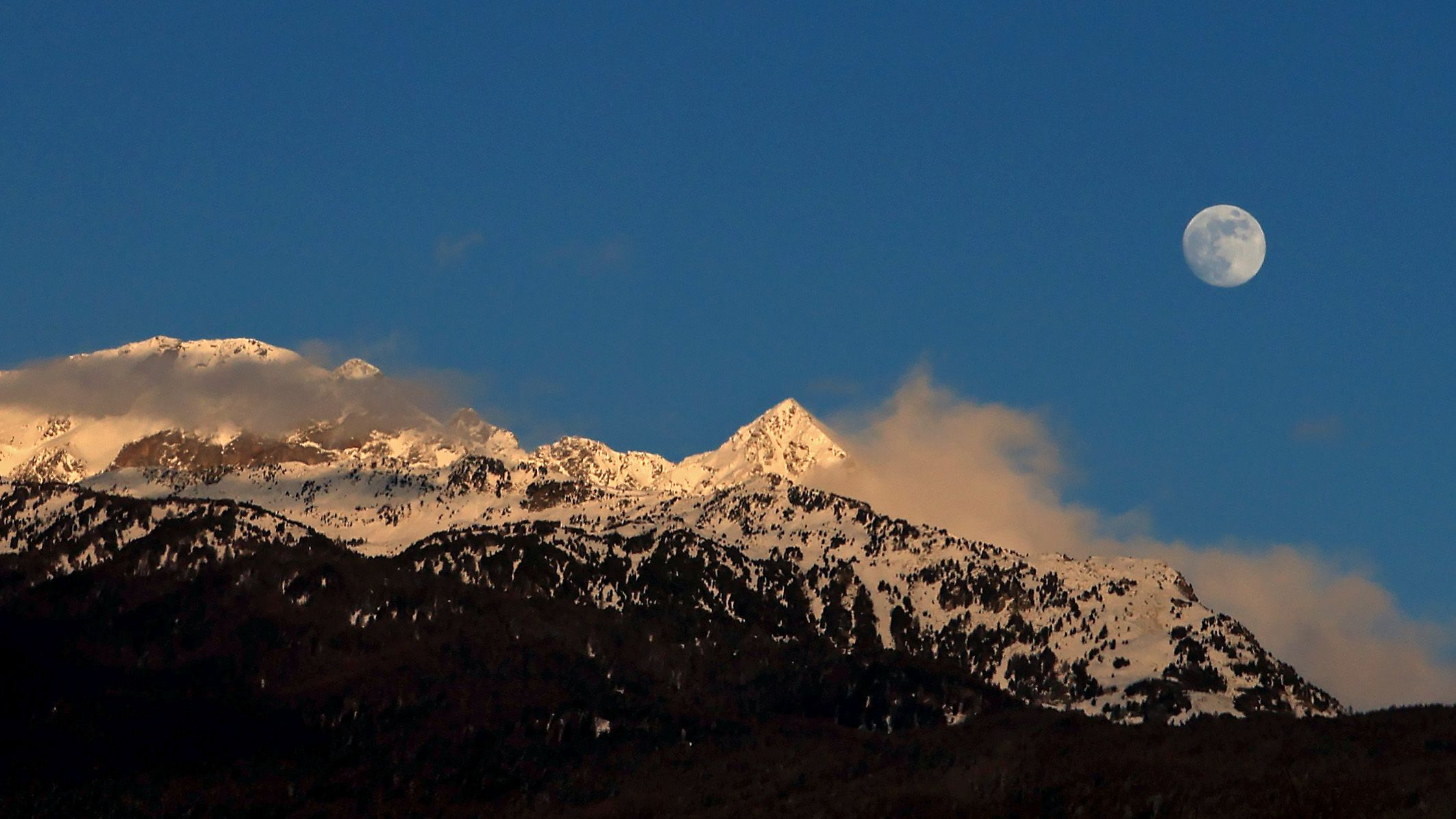Cygnus cargo spacecraft departs the ISS for a fiery re-entry in Earth's atmosphere
A private cargo spacecraft departed the International Space Station (ISS) this morning (July 12).
Northrop Grumman's Cygnus vehicle undocked from the ISS today at 7:01 a.m. EDT (1101 GMT), while the ISS was over the South Atlantic, ending a 5.5-month orbital stay.
This Cygnus spacecraft — named the S.S. Patricia "Patty" Hilliard Robertson, after a NASA astronaut who died in a 2001 plane crash — launched atop a SpaceX Falcon 9 rocket on Jan. 30. The liftoff kicked off the NG-20 mission, so named because it's the 20th that a Cygnus has flown to the ISS for NASA.
The freighter arrived at the ISS two days later, delivering more than 8,200 pounds (3,720 kilograms) of supplies and scientific hardware to the orbiting lab. And Cygnus will carry some science gear on the way down, though it won't reach the ground in one piece.
Related: Facts about Cygnus, Northrop Grumman's cargo ship
"Following unberthing, the Kentucky Re-entry Probe Experiment-2 (KREPE-2), stowed inside Cygnus, will take measurements to demonstrate a thermal protection system for the spacecraft and its contents during re-entry in Earth's atmosphere," NASA officials wrote in a preview of Friday's ISS departure.
"Cygnus — filled with trash packed by the station crew — will be commanded to deorbit on Saturday, July 13, setting up a destructive re-entry in which the spacecraft will safely burn up in Earth's atmosphere," they added.
Breaking space news, the latest updates on rocket launches, skywatching events and more!
Cygnus is one of three robotic freighters that currently service the ISS and its astronauts, along with SpaceX's Dragon capsule and Russia's Progress spacecraft.
Like Cygnus, Progress is designed to burn up in our air at the end of its orbital missions. But Dragon is reusable, coming back to Earth safely in parachute-aided ocean splashdowns.

Michael Wall is a Senior Space Writer with Space.com and joined the team in 2010. He primarily covers exoplanets, spaceflight and military space, but has been known to dabble in the space art beat. His book about the search for alien life, "Out There," was published on Nov. 13, 2018. Before becoming a science writer, Michael worked as a herpetologist and wildlife biologist. He has a Ph.D. in evolutionary biology from the University of Sydney, Australia, a bachelor's degree from the University of Arizona, and a graduate certificate in science writing from the University of California, Santa Cruz. To find out what his latest project is, you can follow Michael on Twitter.


